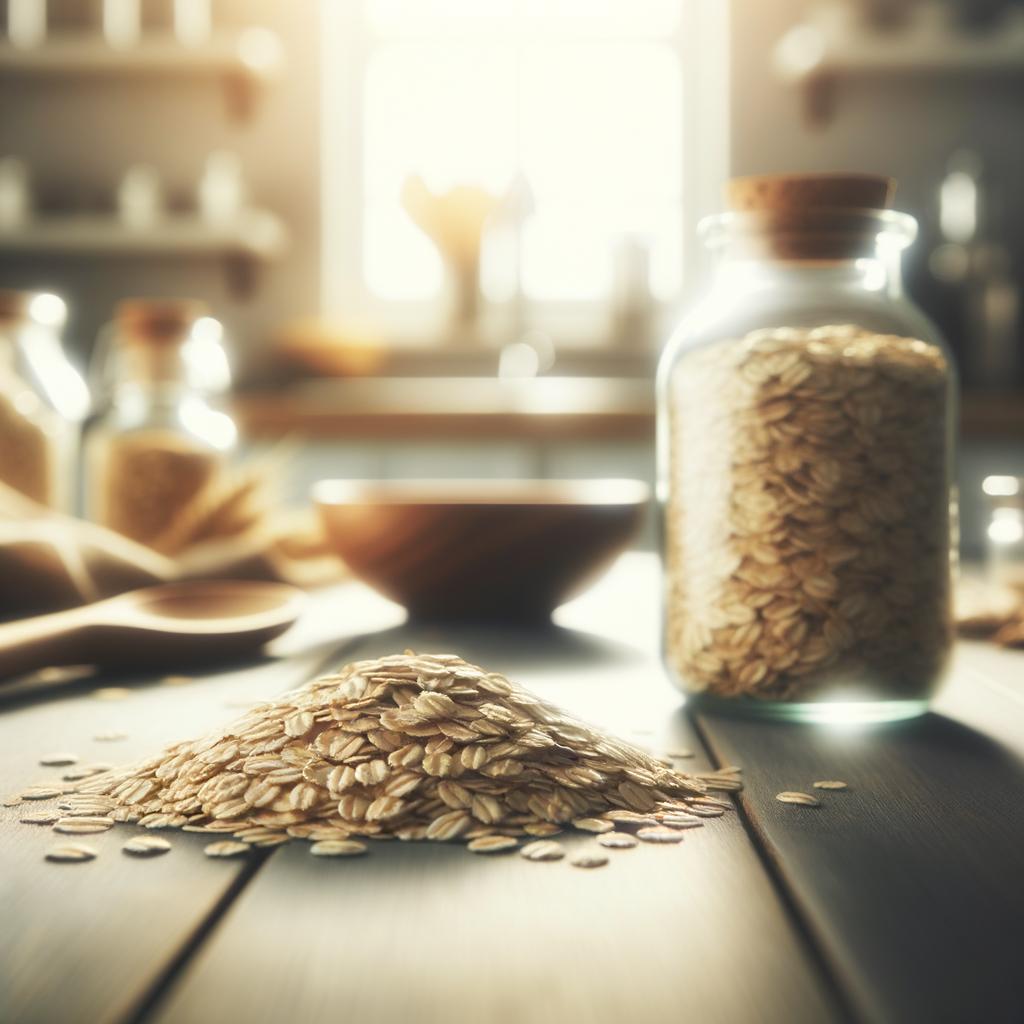Whole Grain Oats

Description
Whole grain oats, the crowning glory of the cereal family, are a humble yet mighty ingredient that has graced our tables for generations. These small, round grains are a delightful golden color, their texture varying from firm to creamy depending on how they're cooked. Oats possess a distinct, earthy flavor, with a hint of nuttiness that can be both comforting and hearty. What sets oats apart from other grains is their outer layer, the bran, which remains intact even after processing. This not only gives them a unique texture but also makes them a powerhouse of nutrition.
Primary Uses
Oats are a versatile ingredient and can be used in a myriad of ways in the culinary world. They are most commonly used to make porridge, a warming breakfast dish beloved across cultures. Oats are also the star ingredient in granola, muesli, and oatmeal cookies. They can be ground into flour for baking or used as a topping for yogurt and fruit. In the beverage industry, oats are used to make oat milk, a popular dairy alternative. Beyond the kitchen, oats have been used for their soothing properties in skincare, and their straw is used in animal bedding.
History
The history of oats is steeped in romance and intrigue. Originating in ancient China, oats were considered a weed in wheat and barley fields before they were recognized for their nutritional value. In Scotland, where the wet climate is perfect for growing oats, they became a staple food and even now, Scottish oatmeal is revered worldwide. Oats played a crucial role during the Industrial Revolution, providing cheap, nutritious sustenance for factory workers. Over time, their popularity has only grown, with oats becoming a beloved ingredient in health-conscious diets. There's an old folklore that eating oats brings prosperity and abundance, a belief that has its roots in the grain's rich, nourishing qualities.
Nutritional Information
Whole grain oats are a nutritional powerhouse. They are high in fiber, particularly beta-glucan, a type of soluble fiber that can help reduce cholesterol levels. They are also a good source of vitamins and minerals, including vitamin B1, iron, and magnesium. Oats are rich in antioxidants, including avenanthramides, which are believed to have anti-inflammatory effects. Compared to other grains, oats have a higher protein content, making them a great choice for vegetarians and vegans. Consuming oats can help with weight management, blood sugar control, and heart health. However, it's worth noting that while oats are naturally gluten-free, they are often processed in facilities that handle other grains, so those with severe gluten intolerance should look for certified gluten-free oats.

